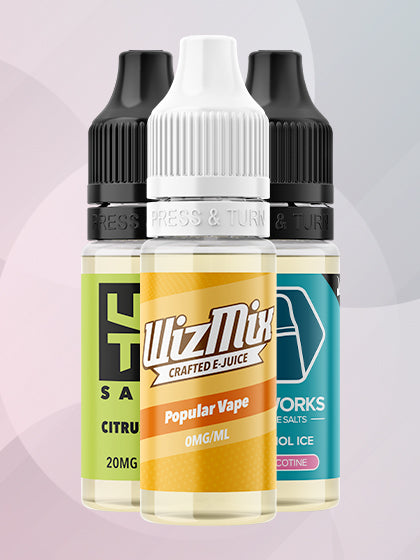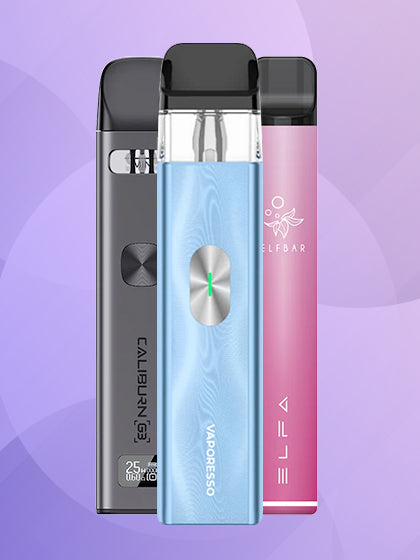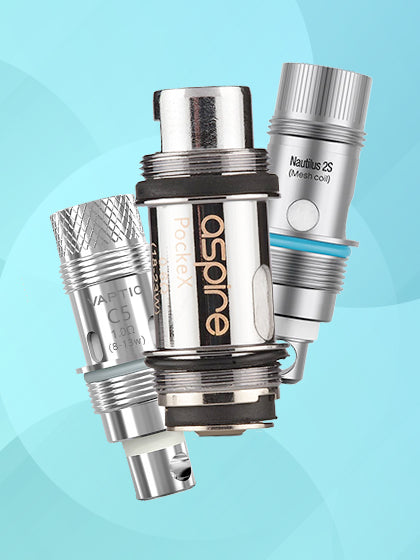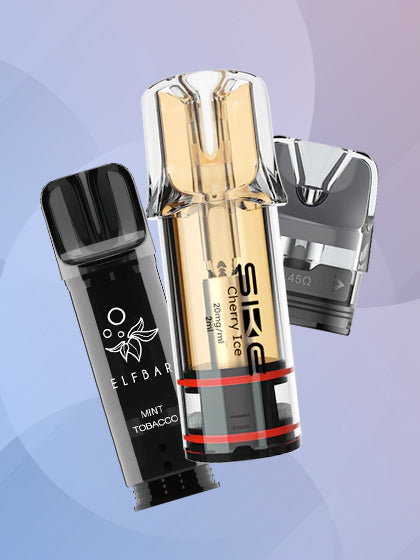Why is The Vaping Industry Being Attacked?
Nov 6, 2019
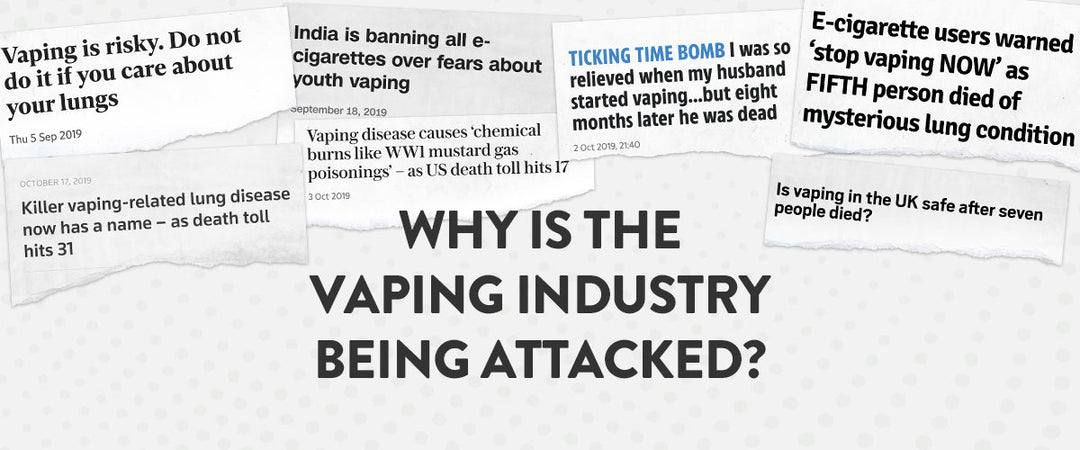
Recently, you may have seen that the vaping industry has been the subject of a barrage of calculated agendas to push an anti-vaping narrative. The assault has been so relentless that it has resulted in people questioning what trusted scientists have already told us. That vaping is less harmful than smoking.
Here in the UK, public health organisations have been under a mountain of pressure to change their stance on their promotion of the benefits of vaping. Our position on vaping has always been that it is the most effective form of smoking cessation, and we unequivocally stand by that.
Vaping is not 100% safe, not much in life is, but the thousands of vaping success stories that we have been a part of over the years are a testament to the importance of e-cigarettes.
The media campaigns are still ongoing, while at the same time, tobacco companies are getting off completely scot-free despite over 7 million smoking-related deaths worldwide each year.
So that poses the question: why is an effective substitute for smoking under such pressure from the media?
What is The Truth Behind The Outbreak of Illnesses in The U.S.?
It had been widely speculated that the culprit behind the spate of illnesses in America is illegal black market THC e-liquids. Now, the Centers for Disease Control and Prevention (CDC) has provided some clarity regarding the illicit products implicated in the outbreak.
In a new statement, the CDC has said that vitamin E acetate (the substance found in illegal THC e-liquid) is “a very strong culprit of concern”. The substance was found in every sample that they collected from the affected patients. This would suggest that most, if not all, of the illnesses are related to illicit vaping products.
They have also expressed that the speed at which the outbreak of illnesses occurred suggests that the cause is down to a specific agent (vitamin E acetate) being used to make the THC e-liquids.
In fact, the CDC has reported that ‘among the 19 deaths that had available data on what substances had been vaped, 63% reported exclusive use of products containing THC, 84% reported some use of THC products, 37% reported vaping products containing nicotine, and 16% said they'd only vaped nicotine-containing products’.
In addition, the CDC has recently updated its website to advise "that you do not use e-cigarette or vaping products that contain THC". Taking all of this into account, it is quite clear that fingers are being pointed at illegal, unregulated e-liquid as opposed to long-term nicotine vaping.
The Influence of Tobacco Industries.
There is no doubt that big tobacco companies would profit from the downfall of vaping as e-cigarettes are a direct threat to their business model. With that in mind, let's look at the influence that tobacco companies have on particular countries.
Earlier this month, the first-ever Global Tobacco Index was released, which ranks thirty-three countries based on the amount of influence that the tobacco industry has on their governments. The rankings depend on a number of factors, which include:
- The tobacco industry's participation in the development of policies.
- Tobacco industry-related corporate social responsibility activities.
- Benefits given to the tobacco industry.
- Unnecessary interaction between government and tobacco industry.
- Measures for transparency.
- Preventing conflicts of interest.
- Measures in place that prevent industry influence.
Some of the countries that are higher in the rankings, such as India, Indonesia and the USA, are also the countries that have banned or partially banned vaping. Coincidence?
The country with the lowest score is the UK as our government receives the least amount of influence from the tobacco industry regarding public policy. The effect of this is clear for all to see. As opposed to banning vaping, the UK has instead embraced the idea of a smoke-free country and has even opened vaping stores in NHS hospitals. Prioritising the safety of e-cigarette users, the UK has implemented strict regulations on the vaping industry to ensure all products that are sold by reputable companies are regulated and monitored to verify that they are free from any damaging chemicals. As a result, in the years since these rules were imposed there have been virtually no reports of any ailments or health issues that are directly linked to nicotine vaping.
The Tobacco Master Settlement Agreement
Many of us may not have heard of the Tobacco Master Settlement Agreement (MSA) but it plays a huge part in the running of the tobacco industry. In 1998, the state attorneys general collectively launched the largest class action lawsuit in US history and sued the tobacco industry to recover the costs of caring for those with smoking-related illnesses. As part of the agreement, the tobacco companies agreed to curtail or stop certain tobacco marketing practices, as well as to provide annual payments to states as compensation. These payments were set as a minimum of $206bn over a 25-year period and give tobacco companies immunity against any tobacco-related healthcare costs. So far, U.S. states have received over $130bn in MSA payments from tobacco companies.
How Does This Affect The Vaping Industry?
Over the past 13 years, the consumption of cigarettes has decreased by an average of 4.5% each year. It is argued that the decline is partly down to the introduction and popularity of e-cigarettes. A crucial aspect of the MSA annual payments is that they are based purely on the consumption of cigarettes and not the profits of tobacco companies. Hence, as the smoking rates decline, so do the payments that the US government receive. This means there is growing uncertainty about the repayment of the MSA and some states will go to extreme measures to ensure that their income is preserved. Taking all of this into account, it’s easy to see why a ban on e-cigarettes would be beneficial to several states in America.
Why Aren’t The Media Reporting These Facts?
As the old adage goes, 'bad news sells' and it has found a new lease of life in the 21st century. Scandals generate clicks and with money being the driving force behind the majority of media companies, it can remove the desire to report facts accurately.
Although illegal, black market THC e-liquids are suspected to be at the forefront of the illnesses in America, the media have chosen not to highlight this fact. Although there have been various instances in which e-cigarettes have helped people successfully quit smoking, the media have decided not to emphasise this fact.
When media outlets are taking an approach as sinister as this, we must take care when it comes to believing everything that we read.
The vitriolic nature of the media bias against vaping poses a great danger to the public health of Britain. The fear that is conjured by sensationalist headlines will drive people away from vaping, and they will inevitably end up smoking again. In the act of fairness, as long as cigarettes are still freely available to purchase, the less harmful alternatives to smoking should still be an option.
Ecigwizard, CDC, PHE and MHRA all stand by the fact that you should only vape regulated e-liquid purchased from reputable sources. If you do not already smoke, refrain from using e-cigarettes and any other vaping products.
11 comments
Robert Sidebottom Nov 14, 2019
